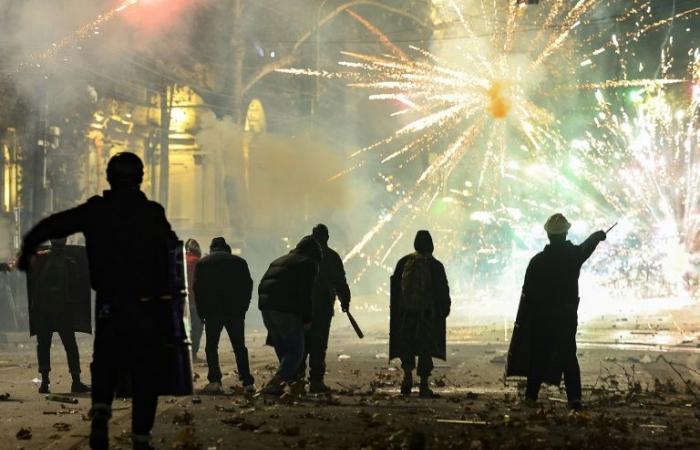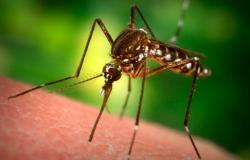Georgia is preparing on Wednesday for a seventh night of demonstrations and clashes with the police in the capital Tbilisi, the government is accused of abandoning the European ambitions of the Caucasian country to move closer to Moscow, struggling to find a way out of the crisis.
Demonstrations in Tbilisi, punctuated by violence, broke out last Thursday after the government announced the postponement until 2028 of the ambitions of this former Soviet republic to join the EU.
This choice ignited the powder in an already tense political climate. The ruling party, the Georgian Dream, is accused of authoritarian drift and the opposition claims that it “stole” the legislative elections at the end of October.
Its results have also been questioned by Western countries. Opposition elected officials refused to sit in the newly elected parliament, denounced as “illegitimate” by demonstrators and experts.
Since last week, tens of thousands of people carrying European and Georgian flags have taken to the streets of the capital Tbilisi, and other cities in this country nestled on the shores of the Black Sea.
Tuesday evening, thousands of demonstrators were still gathered in front of parliament, the epicenter of tensions and mobilization.
In the evening, they were dispersed by police, who used water cannons and tear gas liberally, while protesters threw fireworks in their direction.
The scuffles continued into early Wednesday morning, with officers chasing some protesters through the streets to arrest them.
“Eleven demonstrators, three journalists and a police officer” had to be hospitalized after these clashes,” said the Ministry of Health.
In the afternoon, temporary calm returned to Parliament Square in Tbilisi, although a strong police presence remained visible. Just like the damage the day before: broken windows blocked by cardboard, and anti-government tags covered with black paint.
– “Torture” –
A demonstration is still planned for Wednesday, in the same place, for the seventh evening in a row, raising fears of further violence.
Georgian human rights commissioner Levan Ioseliani accused police of violating protesters “in a punitive manner”, which constitutes “an act of torture”.
This public defender said he visited detained and injured protesters, noting with concern that the majority had serious head or eye injuries.
Some 293 people have been detained since the start of the movement, the Interior Ministry announced Tuesday evening, and 143 police officers have been injured.
President Salomé Zourabichvili, who opposes the government but has limited powers, denounced a “disproportionate” use of force by the police, “massive arrests and mistreatment”.
She has become one of the default figures of a protest movement, which does not have a clear structure.
Georgian Prime Minister Irakli Kobakhidze has, for the moment, adopted a hard line, threatening the opposition and refusing any concessions.
On Wednesday, he promised again to repress the “radical opposition” which, according to him, is organizing “violent actions” and trying to destabilize the country. “No one will escape their responsibilities,” he warned.
The day before, he assured that the Georgians had “misunderstood” and that European integration was “progressing”, despite the postponement that he himself announced.
Irakli Kobakhidze also declared, without evidence, that the protests were the result of organized manipulation from abroad, repeating rhetoric often used by the Kremlin to comment on any spark of dissent in Russia.
The demonstrators are protesting both in favor of the European Union and in opposition to Russia. They perceive the choices of the current government as steps towards the Kremlin.
Georgia remains traumatized by a brief war in the summer of 2008 with Russia, which still de facto controls 20% of its territory.
Do you have a real estate project in mind? Yakeey & Médias24 help you make it happen!






